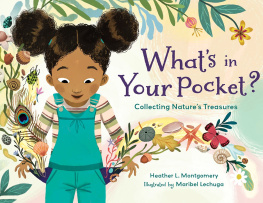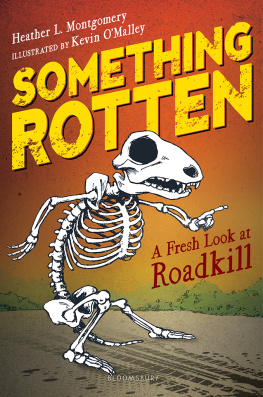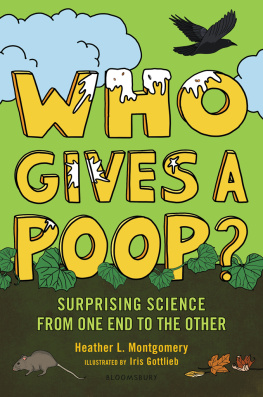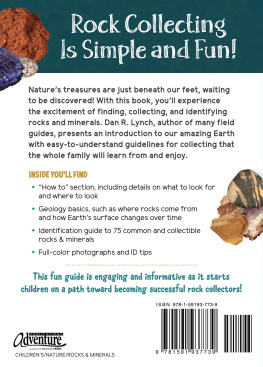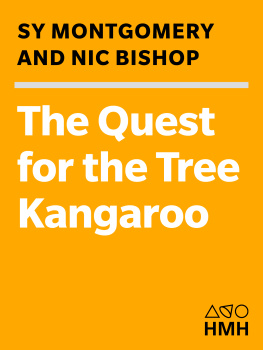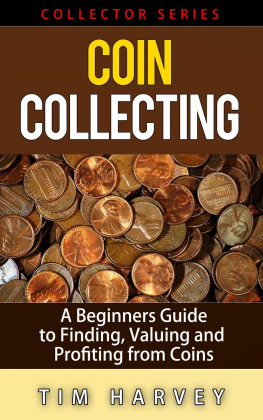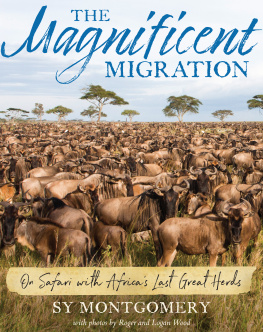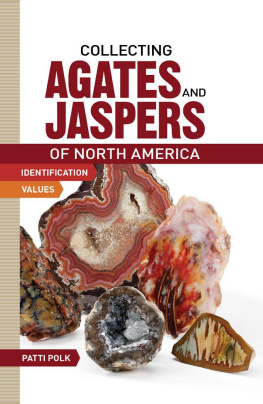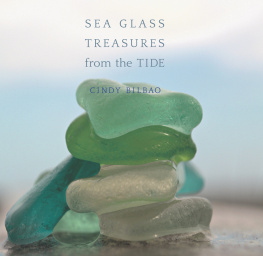Heather L. Montgomery - Whats in Your Pocket?: Collecting Natures Treasures
Here you can read online Heather L. Montgomery - Whats in Your Pocket?: Collecting Natures Treasures full text of the book (entire story) in english for free. Download pdf and epub, get meaning, cover and reviews about this ebook. year: 2021, publisher: Charlesbridge, genre: Art. Description of the work, (preface) as well as reviews are available. Best literature library LitArk.com created for fans of good reading and offers a wide selection of genres:
Romance novel
Science fiction
Adventure
Detective
Science
History
Home and family
Prose
Art
Politics
Computer
Non-fiction
Religion
Business
Children
Humor
Choose a favorite category and find really read worthwhile books. Enjoy immersion in the world of imagination, feel the emotions of the characters or learn something new for yourself, make an fascinating discovery.
- Book:Whats in Your Pocket?: Collecting Natures Treasures
- Author:
- Publisher:Charlesbridge
- Genre:
- Year:2021
- Rating:5 / 5
- Favourites:Add to favourites
- Your mark:
- 100
- 1
- 2
- 3
- 4
- 5
Whats in Your Pocket?: Collecting Natures Treasures: summary, description and annotation
We offer to read an annotation, description, summary or preface (depends on what the author of the book "Whats in Your Pocket?: Collecting Natures Treasures" wrote himself). If you haven't found the necessary information about the book — write in the comments, we will try to find it.
Whats in Your Pocket?: Collecting Natures Treasures — read online for free the complete book (whole text) full work
Below is the text of the book, divided by pages. System saving the place of the last page read, allows you to conveniently read the book "Whats in Your Pocket?: Collecting Natures Treasures" online for free, without having to search again every time where you left off. Put a bookmark, and you can go to the page where you finished reading at any time.
Font size:
Interval:
Bookmark:
as we explore together H. L. M.
To all curious people M. L.
Illustrations copyright 2021 by Maribel Lechuga
All rights reserved, including the right of reproduction
in whole or in part in any form. Charlesbridge and
colophon are registered trademarks of Charlesbridge
Publishing, Inc.
At the time of publication, all URLs printed in this book
were accurate and active. Charlesbridge, the author,
and the illustrator are not responsible for the content or
accessibility of any website.
Published by Charlesbridge
9 Galen Street
Watertown, MA 02472
(617) 926-0329
www.charlesbridge.com
(hc) 10 9 8 7 6 5 4 3 2 1
Illustrations done in digital media
Display type set in Liam by Laura Worthington
Text type set in Grenadine by Mark van Bronkhorst
Color separations and printing by 1010 Printing
International Limited in Huizhou, Guangdong, China
Production supervision by Jennifer Most Delaney
Designed by Jon Simeon
Names: Montgomery, Heather L., author. |
Lechuga, Maribel, illustrator.
Title: Whats in your pocket?: discovering treasures in nature /
Heather L. Montgomery; illustrated by Maribel Lechuga.
Description: Watertown, MA: Charlesbridge Publishing, [2021] | Includes
bibliographical references. | Audience: Ages 48 | Audience: Grades 23 |
Summary: A science educator honors childrens curiosity and pockets full of
stuff by introducing nine scientists who collected natural treasures when
they were young. Collecting, sorting, and playing with shells, stones, and
other objects taught these young people how to observe, classify, and
discover.Provided by publisher.
Identifiers: LCCN 2020028058 (print) | LCCN 2020028059 (ebook) |
ISBN 9781623541224 (hardcover) | ISBN 9781632898975 (ebook)
Subjects: LCSH: Life scientistsBiographyJuvenile literature. |
NaturalistsBiographyJuvenile literature.
Classification: LCC QH26 .M65 2021 (print) | LCC QH26 (ebook) |
DDC 508.092/2dc23
LC record available at https://lccn.loc.gov/2020028058
LC ebook record available at https://lccn.loc.gov/2020028059
National Historic Site), Diego Cisneros-Heredia (research professor, Universidad
San Francisco de Quito), Larry Davis (professor emeritus, College of Saint Benedict
and Saint Johns University), Kay Etheridge (professor, Gettysburg College, and
Maria Merian scholar), Bonnie Lei (Head of Global Strategic Partnerships, AI for
Earth, Microsoft), Meg Lowman (Executive Director, TREE Foundation, and Director
of Global Initiatives, California Academy of Sciences), and Dale Peterson (author of
Jane Goodall: The Woman Who Redefined Man and friend of Jane Goodall) for
their invaluable advice and expertise.
and find something strange and wonderful,
do you put it in your pocket?
observe the details of natural artifacts.
He put it in his pocket.
He forgot all about it, until...
After that, George had to empty out
his pockets on the porch.
the famous scientist George Washington Carver.
He discovered almost three hundred new uses for the peanut,
including soap, glue, fuel, and a new version of peanut butter.
Needing his hands to climb back down,
he held the eggs in his mouth.
He swallowed the eggs!
the famous naturalist William Beebe.
half a mile down under the ocean waves in a steel
ball called a bathysphere. Will was the first
person to see glowing fish and other deep-sea
animals alive in their natural habitats.
She wanted to keep them close,
so she put them...
the worms back in the garden.
the famous primatologist Jane Goodall.
all around her. She studied chimpanzees, learned their
ways, and watched them use toolsa discovery that
changed how people thought about animals.
and find strange and wonderful things,
do you put them in your pocket?
Do you add them to your collection?
they learn to see patterns within their collections.
colorful rocks, empty shells, and living beetles.
so many creatures was wrong.
So Charles let the living beetles be.
keep collecting throughout his life.
oceans to collect beetles and birds and other
creatures. He noticed that animals well suited to a
place survived and passed their traits to their young,
while animals not well suited died off. Over time, this
could lead to changes in a whole group of animals.
She put them in her pocket.
She sorted and labeled and stuffed everything
under her bed.
who liked the collection.
climbing trees as an adult.
for getting into trees safely using slingshots and
hot-air balloons. Those methods helped Meg
Lowman and other biologists discover an entire
world of treasures in the treetops.
Sometimes they escaped in the house.
For his mums birthday Diego gave her a gift...
Together they marveled at the lizard,
then returned it to the wild.
herpetologist who studies lizards and frogs.
new type of frog after his mother! Diego
Cisneros-Heredia has devoted his life to helping
people connect to wildlife.
and find strange and wonderful things
do you put them in your pocket?
Do you add them to your collection?
Do you make amazing discovering?
discoveries, too. Trained to see details
and seek patterns, collectors of any age
can surprise us with their finds.
Her whole family collected them.
sticking out of a cliff,
Mary dug and dug until she discovered...
realize that animals can go extinct.
knew much about fossils or extinction.
Font size:
Interval:
Bookmark:
Similar books «Whats in Your Pocket?: Collecting Natures Treasures»
Look at similar books to Whats in Your Pocket?: Collecting Natures Treasures. We have selected literature similar in name and meaning in the hope of providing readers with more options to find new, interesting, not yet read works.
Discussion, reviews of the book Whats in Your Pocket?: Collecting Natures Treasures and just readers' own opinions. Leave your comments, write what you think about the work, its meaning or the main characters. Specify what exactly you liked and what you didn't like, and why you think so.

